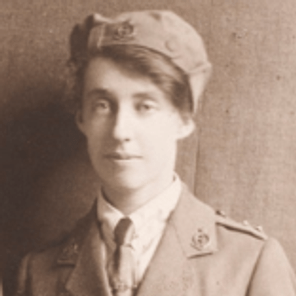
- Inducted:
- 2001
- Category:
- Honour Roll
Vera Scantlebury Brown graduated in medicine at the University of Melbourne and became Resident Medical Officer at Royal Melbourne Hospital in 1915, and in 1916, she was Resident Medical Officer at Children's Hospital where she became a Senior RMO before the year's end. In 1917, she travelled to London where she worked as a Medical Officer with rank of Lieutenant at a major military hospital (Endell St). In 1920, Vera was a Resident Medical Officer at Women's Hospital, before going into private medical practice.
Post-war, she had Honorary appointments at Women's, Queen Victoria and Children's hospitals and was honorary Medical Officer to Victorian Baby Health Centres Association and the Free Kindergarten Union. Vera realised, on returning from war service, that there was widespread poverty, poor housing and high infant mortality in the community. Some groups of volunteers, led by Dr Isobel Younger Ross, had established some baby health centres with assistance from municipal councils, but she was the prime mover in bringing about the structures that put maternal and child well-being on the community and political agenda.
Her main achievements were the development of a formal network of Infant Welfare Centres throughout the State, introduction of ante-natal and preschool medical services through a comparable network of clinics and the establishment of the tradition that all personnel - medical, nursing and early childhood education - who served mothers and children in the community should be properly trained. The Vera Scantlebury Brown Scholarship, created after her death in 1946 and awarded annually, recognises her insistence on trained staff.
Vera is honoured for her achievements in improving the health and welfare of women and children in Victoria. Her vision, energy, persuasiveness, leadership and organising ability made this possible. The services required co-ordination, integration, expansion, public and professional education, standards of facilities and training, as well as the extension of services to rural areas, where mobile services, a correspondence scheme and radio broadcasts were among strategies used.
Updated